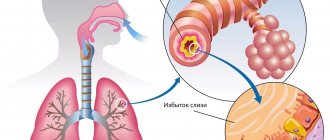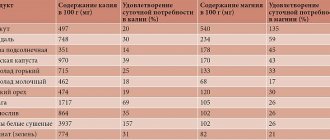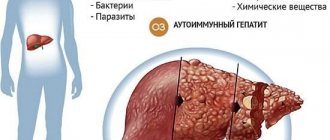- MagniuM
- Articles
- Magnesium deficiency
|
|
Date of publication: 05/27/2019
Modern life sets us such a pace that we are accustomed to attributing most ailments to chronic fatigue, stress and poor nutrition. In fact, the body gives us signals about a lack of vitamins, minerals and microelements, which are so necessary for normal functioning. One of these elements is magnesium. A huge number of biological processes in the human body cannot occur without it. A lack of magnesium has a complex effect on health, affecting all organs and systems of the body.
The role of magnesium for the human body
Among the elements contained in the human body, Mg is in fourth place in abundance. It makes up 0.2% of the total human body weight. The largest amount of the substance is found in the bones, about 60%. Approximately 20% of the mineral is found in muscle tissue, and the same amount is distributed throughout soft tissue. The higher the metabolism of a particular organ, the more of this substance it requires.
A healthy adult needs to consume 350 mg Mg per day. Depending on age and circumstances, the amount may vary. In stressful situations, adolescents during periods of intensive growth, women during pregnancy and lactation require 100-150 mg more of the element. The mineral is also necessary for diseases caused by infections during post-operative recovery of the body. In addition, during intense physical activity and visiting a bathhouse, Mg is washed out of the body along with sweat.
So, what properties does magnesium have?
- Regulates blood pressure.
- Strengthens bones and muscles.
- Promotes the growth and development of children.
- Participates in the removal of toxins, bile and cholesterol.
- Helps strengthen the nervous system.
- Prevents the formation of blood clots in blood vessels, sand and stones in the kidneys and gall bladder.
- Regulates blood sugar levels.
- Stimulates intestinal peristalsis.
Thus, Mg takes part in the most important processes occurring in the human body, and its deficiency, as well as its excess, will negatively affect the functioning of all organs.
1.General information
Today, a lot is often written about the importance of vitamins and microelements for health, longevity and effective functioning of the body. In this regard, humanity has gone through various, including not entirely adequate, stages of understanding and attitude towards the problem (remember, at least, the hysterical “vitamin mania” of the 1960-70s in the USA, largely provoked by drug manufacturers and beneficial, first of all, to them) . However, the problem itself does not disappear; it remains acute and relevant in almost all regions of the globe. In recent decades, much attention has been paid, for example, to iodine deficiency conditions and diseases that were previously explained by completely different reasons.
Magnesium is one of the most important, “framework” chemical elements that ensure the normal functioning of the human body. One-fifth of the total volume of magnesium is contained in the tissues of the central nervous system, the same amount is found in the liver, kidneys and muscles, including the myocardium. Even these simple data indicate the importance of normal (no more or less than the required level) magnesium concentration for the functioning of vital organs.
The main part, that is, about 60% of the total magnesium reserve, is found in bone tissue, including dentin and tooth enamel. It has been established that magnesium is involved in more than 300 key biochemical reactions.
Research conducted in recent years, the results of which are published in the world's specialized periodicals, clearly proves: the vast majority of people in developed countries are at risk for magnesium deficiency, and the role of this deficiency in the pathogenesis of many diseases is, in all likelihood, underestimated.
A must read! Help with treatment and hospitalization!
Magnesium deficiency and its causes
Hypomagnesemia is a lack of magnesium in the human body, diagnosed when the concentration of the element in the blood plasma falls below 0.7 mmol/liter.
According to the latest data, Mg deficiency in the body is observed in every third person. Experts say the reasons for this are:
- poor nutrition, excessive love of fast food, protein foods, caffeine and alcohol;
- obesity;
- following a strict diet, sudden weight loss;
- a sedentary lifestyle or, conversely, exhausting physical activity;
- surgical interventions;
- use of a number of medications, such as antibacterial, steroid, hormonal agents;
- violation of the qualitative composition of the soil, which saturates agricultural crops with microelements;
- constant stress;
- consequence of a previous illness;
- indigestion, diarrhea, vomiting.
The most susceptible to hypomagnesemia are elderly people, as well as people suffering from gastrointestinal diseases - kidney and liver diseases, inflammatory processes in the intestines. Heart failure also affects the absorption of the element. A deficiency of magnesium in the body can be influenced by a deficiency of iron or calcium, or an excess of vitamin D and potassium. Calcium and magnesium interact closely with each other, therefore, with a lack of Mg, calcium deficiency - calcinosis - often occurs. If the calcium concentration significantly exceeds the norm, then the consumption of Mg increases.
Some categories of people need Mg in large quantities. If a healthy adult needs to receive 300-350 mg of the substance per day, then some women, men and children should increase their intake of the mineral by 100-150 mg.
- For athletes under high physical activity.
- Persons who consume a lot of protein foods.
- In stressful situations to calm the nerves.
- With regular consumption of alcoholic beverages.
- After surgical interventions for faster recovery of the body.
- When using antibiotics and some other groups of drugs.
Microelement deficiency is divided into primary and secondary. Primary deficiency is caused by a disruption in the functioning of internal organs and genes. Secondary deficiency occurs due to external factors - lifestyle, psycho-emotional state, dietary habits, environment.
When there is not enough magnesium in the body, the symptoms are quite extensive and can be similar to many other diseases.
How to Get Enough Magnesium
The table below shows the recommended daily intake, or adequate intake, for men and women.
| Age | Man | Woman | Pregnancy | Lactation |
| From birth to 6 months | 30 mg* | 30 mg* | ||
| 7–12 months | 75 mg* | 75 mg* | ||
| 1–3 years | 80 mg | 80 mg | ||
| 4–8 years | 130 mg | 130 mg | ||
| 9–13 years | 240 mg | 240 mg | ||
| 14–18 years old | 410 mg | 360 mg | 400 mg | 360 mg |
| 19–30 years old | 400 mg | 310 mg | 350 mg | 310 mg |
| 31–50 years | 420 mg | 320 mg | 360 mg | 320 mg |
| 51+ years | 420 mg | 320 mg |
*Adequate intake
Although many people do not reach the recommended daily allowance of magnesium, there are many foods rich in magnesium.
It is widely found in both plants and animal products. The richest sources are seeds and nuts, but whole grains, beans and leafy green vegetables are also relatively rich sources.
Below are the magnesium contents per 100 grams of some of the best sources:
- almonds: 286 mg
- pumpkin seeds: 535 mg
- dark chocolate: 152 mg
- peanuts: 168 mg
For example, just 28.4 grams of almonds provide 20% of your daily value for magnesium.
Other great sources of magnesium include:
- flax-seed
- sunflower seeds
- chia seeds
- cocoa
- coffee
- cashew
- hazelnut
- oats
Magnesium is also added to many breakfast cereals and other processed foods.
If you have a condition that causes your body to lose magnesium, such as diabetes, it is important to eat plenty of magnesium-rich foods or take a supplement.
Talk to your doctor about creating a plan to increase your magnesium intake that meets your needs.
Bottom Line: Seeds, nuts, cocoa, beans, and whole grains are excellent sources of magnesium. For optimal health, try to eat foods rich in magnesium every day.
Common symptoms of magnesium deficiency
It is almost impossible to determine hypomagnesemia using conventional blood tests; this requires an in-depth study of its plasma. Therefore, doctors often diagnose the disease based on patient complaints and the general clinical picture.
The following symptoms indicate the presence of pathology.
- Nervous system: nervousness, irritability, insomnia, weakness, headaches, anxiety, poor concentration, memory impairment.
- Cardiovascular system: arrhythmia, tachycardia, high blood pressure, chest pain.
- Gastrointestinal tract: intestinal discomfort, constipation, difficulty swallowing, stomach cramps, nausea.
- Weakness and muscle spasms, cramps, numbness and tingling in the limbs.
With a lack of magnesium, both women and men often experience excessive cravings for sweets, which causes them to gain excess weight. Therefore, the presence of excess body weight can also indicate hypomagnesemia.
Symptoms of magnesium deficiency in women
Women are more susceptible to developing a condition called hypomagnesemia. This is due to the fundamental difference in the structure of the female body from the male one, and hormonal levels play a big role here, which changes during pregnancy, breastfeeding, and menopause. It is hormonal imbalance that can become the first symptom of hypomagnesemia.
Other exclusively female symptoms of mineral deficiency may be excessively painful menstrual periods and pronounced signs of premenstrual syndrome: irritability, nervousness, tearfulness, sudden mood swings. With hypomagnesemia, cycle irregularity is observed, and the girl’s ability to become pregnant is reduced.
Women over 45 years of age during menopause suffer most from microelement deficiency. If the body lacks Mg, then menopause is more difficult and more noticeable for a woman. All its symptoms become more severe (excessive sweating, hot flashes, headaches, blood pressure surges, excess weight gain is possible).
The microelement is especially important for girls during pregnancy. Its deficiency threatens disturbances in fetal development, uterine tone, edema, muscle cramps and miscarriage.
Symptoms of magnesium deficiency in men
There is no direct relationship between the level of Mg in the body and male potency. But symptoms such as weakness, insomnia, decreased concentration, and irritation can significantly affect libido. Physical activity with pathology becomes especially difficult, the man suffers from shortness of breath, arrhythmia and tachycardia. Jumps in blood pressure are possible.
Why and how we lose valuable minerals
Magnesium is not produced in the body; it can only be obtained externally. But it is actively excreted with liquid. What factors accelerate the process of magnesium loss?
Regular consumption of alcoholic beverages (more than three times a week, one glass of wine) automatically puts you at risk. Beer, cocktails and wine are diuretic products, which means they contribute to the rapid removal of magnesium. Lovers of coffee with sweet buns are also at risk. The diuretic effect of coffee in combination with fast carbohydrates, the processing of which also requires magnesium, can cause a deficiency of this valuable mineral.
Constant stress and excessive exercise contribute to the depletion of magnesium reserves. The situation is aggravated by poor nutrition, excess fat, thermally processed and refined foods. Another important factor is illness and medication. The cause of magnesium deficiency can be metabolic disorders, excess weight, gastrointestinal problems, kidney and endocrine system diseases, taking antibiotics and birth control pills, and uncontrolled calcium intake.
Consequences of hypomagnesemia
Long-term Mg deficiency can cause serious consequences throughout the body. Dizziness is becoming more common, blood pressure can be either high or low. Disorders in the cardiovascular system are associated with the accumulation of excess calcium in blood vessels and the formation of blood clots. Nervousness and irritability develop into depression.
For children, hypomagnesemia is dangerous due to slower growth and development. Both adults and children are at risk of developing asthma and type 2 diabetes.
The most serious consequences of the disease can be strokes, heart attacks, and tumors.
The most important
Magnesium is necessary for the functioning of all body systems: it helps cells receive energy, regulates the functioning of the heart and nervous system, and participates in the formation of bone tissue.
A lack of magnesium is caused by an unbalanced diet, addiction to diuretics and laxatives, as well as an addiction to alcohol and coffee. Tags:
- Alcohol
- Metabolism
- Avitaminosis
- Caffeine
- Calcium
- Dictionary
To leave a comment you must be an authorized user
Prevention of magnesium deficiency
There are several ways to cover Mg consumption and prevent its deficiency.
- Mineral and vitamin complexes.
- Mineral water.
- Specialized magnesium water.
- Food products containing Mg in sufficient quantities.
Mineral and vitamin preparations should be taken only as prescribed by your doctor. If you only suspect that your body lacks Mg, do not self-medicate. All systems and organs will also suffer from an excess of this substance. Mg surplus manifests itself as weakness, dry skin, increased body temperature, diarrhea, and dehydration.
An excess of the substance leads to a decrease in blood pressure, vasodilation, and an increase in heart rate. The nervous system will respond to excessive mineral content with insomnia, increased excitability, and irritability.
Although Mg is one of the building materials for muscles, its excess negatively affects the condition of muscle tissue, leading to cramps and pain.
Mineral complexes
The most popular and popular vitamin-mineral complexes prescribed by doctors for hypomagnesemia are Magne B6, Magnelis B6, Complivit Magnesium, etc. Their action is aimed at replenishing the deficiency of one specific microelement - Mg. But the dosage in them is not so high as to completely cover the deficiency of the substance, so they must be taken in parallel with eating foods enriched with the substance.
Mineral water
Medicinal, table and medicinal-table mineral waters also contain trace elements in different quantities, but, like mineral complexes, they are not a panacea. In addition, mineral water is contraindicated for some people.
4.Treatment
Obviously, the first priority in the treatment of magnesium deficiency is a radical reduction (and, if possible, complete elimination) of all controllable causes and risk factors associated with diet and lifestyle. Further, today many magnesium-containing preparations and supplements have been developed and are successfully used that can compensate for the deficiency of this element in the body. Great importance is attached to calcium-magnesium mineral waters.
Mention of therapeutic success is by no means empty words. Serious, properly organized medical and statistical studies have been carried out, showing: magnesium is indeed an antiplatelet agent and significantly reduces mortality, in particular from post-infarction ventricular arrhythmia, thrombosis and other complications, not to mention the normalization of somatic and neuropsychic status.
However, it should be absolutely clear that any treatment of this kind can only be carried out as prescribed by a doctor, after a thorough clinical and biochemical examination.









